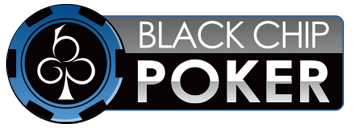The Best Poker Sites for US Players
This site was created to help US-based poker players find the best US poker sites with plenty of action in a secure and fair environment. We have combed through the internet and ranked the best poker sites for US players according to factors like security and game integrity, financial risk, promotions, software, and more.
Get a 100% Bonus up to $2,000 on your first deposit.
Action-packed tournaments, super fast payouts, and over 1,000,000 online poker hands played daily.
200% up to $1,000 + 100% match bonuses on your next eight deposits, up to $500 each.
Extensive range of lucrative promotions and outstanding rewards programs.
100% up to $1000
Customizable tables, tiered loyalty program and single-account access to a full-service online casino and sportsbook.
100% up to $1000
Play against thousands of poker players online from home on your desktop or mobile phone.
100% up to $1000
Bovada is a trusted online gambling site offering sports betting, poker, casino games and betting on horse racing.
100% up to $1000
Rebranding of Bovada Poker, playable on most mobile devices, features a wide variety of cash games and tournaments.
FAQs
Are your funds safe at offshore poker sites?
Especially in recent years, online poker in the United States has been in the news for the wrong reasons. Facing a number of legal actions by the US Department of Justice, the industry seems to have a bit of a black mark in the minds of some players. In this article, we will examine the existing laws affecting online poker and its legality in the United States.
The Unlawful Internet Gambling Enforcement Act
After several attempts to criminalize internet gambling operators through legislation, Congress attached a provision onto a SAFE Port Act which regulated port security. The legislation was called the Unlawful Internet Gambling Enforcement Act of 2006 (UIGEA) and was signed into law by President George W. Bush on October 13th, 2006.
The UIGEA does not criminalize online poker players or the act of gambling online, but instead goes after gambling site operators and payment processors that process online gambling transactions.
The passage of the UIGEA quickly eliminated some of the larger online poker rooms from the US market. Many companies, such as Party Gaming, are publicly traded. Since their shareholders could be charged criminally for crimes committed by the company, they immediately withdrew from the US market. The law changed the online poker landscape and gave more power to rooms that stayed in the US market.
Black Friday
On April 15th, 2011, the United States District Court of the Southern District of New York unsealed an indictment implicating PokerStars, Full Tilt Poker, Absolute Poker and Ultimate Bet, along with several payment processors. They seized domain names, froze bank accounts and charged 11 defendants with violation of the UIGEA. Full Tilt and PokerStars were given their .com domain names back after they agreed to leave the US market. Still, even after all these indictments came down, many online poker sites still continued to service US players.
What type of game variety is there online?
Online poker rooms offer players much more in game variety than their brick n’ mortar counterparts. Even in the largest live poker rooms around the world do not offer as many games as even the most basic of online rooms.
Heads-up and 6-max games are not readily available in most live rooms. The same goes for tournaments. Online rooms offer round the clock sit n’ go tournaments and large field tournaments with hundreds of thousands of dollars on the line. Live casinos have these events as well, but for the vast majority of poker players they are inaccessible.
Is online poker faster action and less rake vs playing offline?
In brick n’ mortar casinos, players are limited to one poker table and a measly 20-35 hands an hour–online poker dwarfs that amount two-fold. Online players can multi-table large amounts of tables, increasing their win rate and rewards.
Also, when playing in a brick n’ mortar casino, players will contribute a much larger amount of rake than they would when playing online. Most land based casinos will take up to $5 out of the pot and may take extra money out for promotions, such as a bad beat jackpot. These numbers can be even higher depending on the casino.
Online casino rake is much smaller. The vast majority of online sites will not rake pots more than $3 and offer promotions such as a bonuses and rakeback, which will offset the cost of an already low rake amount.
Also, it is vital to note that players will have to tip dealers if they play live. This is an added expense which can total thousands of dollars a year, depending on how much time players spend playing. Online poker offers no such expense, due to the automated software and lack of a need for dealers.
What are the benefits of playing poker online vs at my local casino?
Online poker allows players the ability to play poker 24 hours a day from the safety of their own home by simply logging on their computer. Players can wake up and play in their underwear. They will not have to waste gas money or put their name on a waiting list and wait even longer at the casino for their favorite game.
The online game differs from live poker in many ways and offers players clear advantages from their local brick n’ mortar casinos. Below, we have listed several reasons to begin playing online vs playing at a live casino.
Where can I play real money poker in the USA?
Another common question is: Where can I play poker in the US? We could easily just provide a link to some poker rooms and leave it up to you to decide where you want to play. But we actually try to take it one more step and provide recommendations on where you should play poker in the US.
In effect, we’ve attempted to become both a resource and a guide on the US poker industry. Fully aware that many other US poker portals exist, we appreciate every visitor we receive and we feel we owe you the respect to always provide the most up today information.
Is online poker legal in the USA?
One of the most asked questions we receive is: Can you play online poker in the US? In a word: Yes.
No American citizen pre-UIGEA or since its passage has been charged with a crime for gambling online. Similar to laws on bookmaking, the bookie who takes the bets from players is liable to prosecution, not the individual bettor who decides to bet on a sporting event.
The Unlawful Internet Gambling Enforcement Act
After several attempts to criminalize internet gambling operators through legislation, Congress attached a provision onto a SAFE Port Act which regulated port security. The legislation was called the Unlawful Internet Gambling Enforcement Act of 2006 (UIGEA) and was signed into law by President George W. Bush on October 13th, 2006.
The UIGEA does not criminalize online poker players or the act of gambling online, but instead goes after gambling site operators and payment processors that process online gambling transactions.
The passage of the UIGEA quickly eliminated some of the larger online poker rooms from the US market. Many companies, such as Party Gaming, are publicly traded. Since their shareholders could be charged criminally for crimes committed by the company, they immediately withdrew from the US market. The law changed the online poker landscape and gave more power to rooms that stayed in the US market.
With that said, poker sites today have to be more careful than ever with their payment processing and financial transactions as many are facing legal threats from the US government. We’d like to point out that you should take this as legal advice and if you are interested in learning more about if online poker is legal in your state, please consult a lawyer.
Several legislators believe online poker in the United States is illegal and many other players think it is entirely legal. The 100% truth is in fact online poker is a grey area and has more to do with what state you are currently living in than anything else.
This is why several US online poker rooms don’t provide access to players living in some states over others.
Why we stand out from other poker review sites
Unbiased Reviews
We play at the sites found here and are continuously assessing poker software, bonuses, and payouts to ensure that our reviews and ratings help you make a smart choice.
Exclusive Bonuses
The best, verified online poker bonuses available to US players are found here. Let’s find your favorite poker site today!
Dispute Resolution Services
If disputes arise with any site listed here, USOP’s free mediation services can help you (24/7) resolve your issues quickly.
US Poker & Gambling Laws by State
Is Online Poker Legal in the USA? Online poker has had a confusing history in the US over the years. However, things are finally starting to take a turn for the better. Four states, Nevada, New Jersey, Pennsylvania, and Delaware, have already legalized online poker and they all have active sites for poker players to enjoy. Other states, such as Michigan and West Virginia, for example, have legalized online poker and are currently working on getting their markets running. More states will almost certainly be added in the next couple of years.







